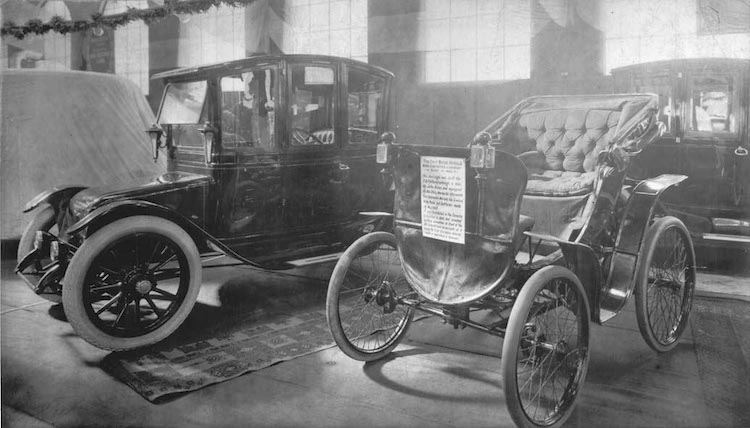By Giles Kirkland
An automotive expert and blogger, Giles Kirkland says he has a passion for new technologies.
LONDON (IDN) – In 2016, a businessman called Francis Romano imported an electric car Nissan Leaf to Nairobi, Kenya. However, the car was held up at the Customs for an intriguing reason: they had never seen an electric vehicle before! Fast-forward to today and Romano claims that the use of electric vehicles (EVs) has saved him a staggering 70 percent of fuel costs in his business.
The steadily urbanizing Africa has a development rate of 4 percent per year on average – the highest in the world. This has increased the demand for fuel sources to the point of scarcity. Despite the government’s efforts to subsidize the costs, citizens have to pay up to 15-30 percent of their incomes on transport. Fuel-based vehicles do not help the case for the air pollution issues worsening day by day on the continent. 246,000 premature deaths in Africa were caused by polluted air in 2013 alone.
This is where EVs come in. An electric vehicle runs on electricity which can be stored in cars via batteries allowing it to be run on electricity produced using renewable resources. In 2017, about 77 percent of the electricity used in Kenya was produced renewably. These cars are very cost-efficient in the long-run. Moreover, they do not emit directly through the exhaust pipe, which effectively protects the environment and tackles the dire pollution problem.
The first electric car was made by Sibrandus Stratingh in the 1830s, but combustion engines remained the dominant choice for over a century. Awareness on energy conservation, global warming and our environmental accountability brought the electric cars back to popularity in the 21st century. So much so that EVs are estimated to have 30 percent of the global share by 2030.
If this is to be true, we can save our planet from over 3 billion tonnes of carbon emissions a year. As proof of their newfound popularity, 1.6 million EVs were sold in Europe, U.S. and China in 2018 alone. Where other continents are opening their roads to the future, Africa is not far behind.
Currently, Africa has two brands of available electric cars: BMW and Nissan Leaf. Since the launch in 2015, BMW has sold 600 electric cars in Africa and the number is expected to increase soon.
Hailey Philander, the BMW communication manager for Africa says they have sold 140,000 EVs globally last year and will soon launch bigger battery packs for the BMW i3 in Africa. The company have 30 ‘ChargeNow’ stations in Africa, a number expected to rise by the end of 2019. Nissan Leaf has also confirmed its plan to launch a trial program and a new Nissan Leaf to the market. BMW and Nissan are looking ahead for a joint venture in creating a grid of EV charging stations.
Another automobile giant is soon to join the market for electric cars in Africa: Jaguar Land Rover. They have partnered with GridCars to set up 22 electric charging stations for the public along the N3 in a project called the ‘PowerWay’ as well as 30 stations at various points of convenience such as shopping malls. Soon, the Jaguar I-Pace and Range Rover hybrid will become a common sight on the roads of Africa.
Government incentives will also play a huge part in the development of electric cars. After gathering data from important stakeholders in the industry and keeping in mind the need to encourage the use of electric vehicles, the Automotive Production and Development Program was presented for the years 2012-2020.
It allows carmakers to import models with reduced duties, as long as an equivalent value of vehicles and components is exported. This facilitation by the Government has been successful in attracting automobile companies in expanding and introducing the latest technologies in Africa.
The new version of this program will also have tariff reductions for electric vehicles. Keeping in mind the upcoming program researchers have estimated a sharp increase in the uptake of EVs from 2020 onwards.
With urbanization comes the need for better infrastructure which will not only improve the economy but also prove to be an attractor for the use of electric vehicles. In 2018, Sweden launched the world’s first smart road which charges electric cars on the go. Such technological advances may advantage Africa with a leapfrog growth factor. The government’s focus on developing roads and the increasing numbers of EV charging stations will no doubt favour the growth of electric cars on the continent.
As of 2019, there are 5.6 million electric cars on the roads worldwide. No doubt, these numbers will grow and the use of environmentally-friendly, energy-saving and low-cost cars will be commonplace in Africa. [IDN-InDepthNews – 07 June 2019]
Photo: An electric vehicle and an antique car on display at a 1912 auto show in Toronto, Canada. Credit: William James. Source: Wikimedia Commons.
SUPPORT US in Speaking Out for People, Planet and Peace.
IDN is flagship agency of the International Press Syndicate.
facebook.com/IDN.GoingDeeper – twitter.com/InDepthNews
Send your comment: comment@indepthnews.colo.ba.be
Subscribe to IDN Newsletter: newsletter@indepthnews.colo.ba.be

